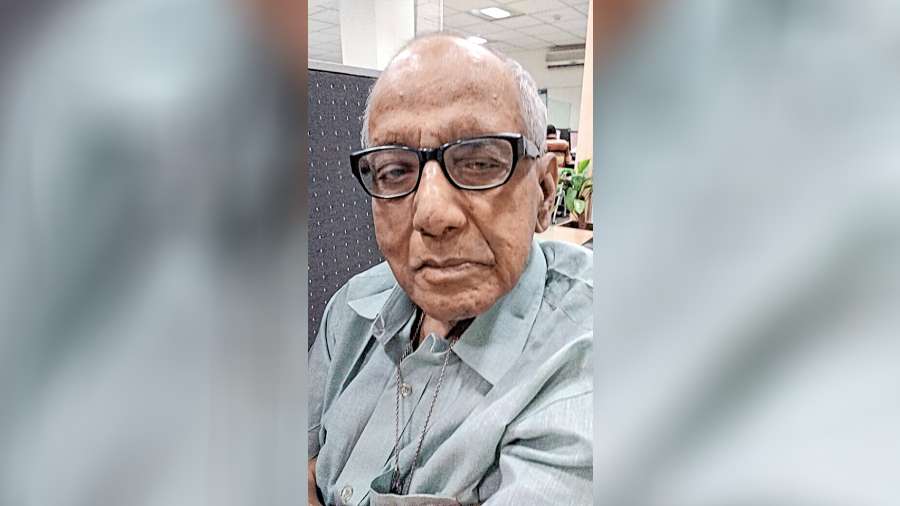Arun Kumar Das Gupta, an acclaimed professor of English literature, passed away at his home on Galiff Street in north Kolkata late on Tuesday after a prolonged illness. He was 90.
He leaves behind two daughters and scores of students.
Known as AKDG, he was devoted to nurturing and mentoring his students who benefited immensely from his vast scholarship and his unique approach to the study of literature.
Das Gupta, born on June 14, 1932, matriculated from Scottish Church Collegiate School and studied English at Presidency College. He graduated with first-class honours in 1951 and completed his master’s in 1953.
He won a state scholarship to study at Wadham College in Oxford. On his return, he first taught at BE College, Shibpur, and then joined the English department at Presidency College in 1961, where he worked with colleagues like Tarak Nath Sen and Amal Bhattacharya.
Soft-spoken and gentle, he inculcated in his students an expansive approach to English literature by introducing them to Renaissance art, architecture and music.
In 1977, Das Gupta joined the department of English at Calcutta University. Referring to one of the papers he taught at CU, a student remembers: “Those of us sitting in the front rows, could savour to the fullest the high density of content of Arun Kumar Das Gupta’s lectures on King Lear.”
Das Gupta retired in 1997.
He was married to late professor Karabi Das Gupta, who taught Bengali at Rammohun College.
Among his students were Sukanta Chaudhuri, Supriya Chaudhuri, the late Swapan Chakravorty, Shirshendu Chakrabarty, journalist M.J. Akbar and many others.
Sukanta Chaudhuri, Professor Emeritus at Jadavpur University, says of his mastermoshai: “He was one of the few teachers who impacted a whole generation of students. He had a very original turn of mind with a very distinctive thought process. He had a natural affinity to the European Renaissance and his focus on continental Renaissance studies was a new addition to the academic programme. He was soft-spoken but a man of very strong principles with a quiet sense of humour. A family man, he took care of his ailing wife and brought up his daughters along with caring for the family cat and cooking sumptuous meals.”
